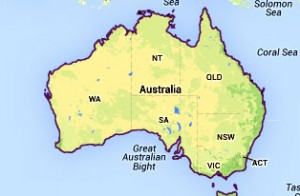
Australian Security Intelligence Organization Director-General David Irvine said Australia’s terrorist threat level could be lifted from “medium” to “high” before he retires after five years in office at the end of this week.
“It’s something that we in ASIO are actively considering,” Irvine told Australian Broadcasting Corp. television in an interview late Tuesday.
Irvine said elevating the threat level would mean that a terrorist attack on Australian soil had gone from “possible” to “likely.” The highest threat level is “extreme,” which means an attack is “imminent or has occurred,” the government says.
“I would say that at the moment, it is at a very elevated level of medium and I’m certainly contemplating very seriously the notion of lifting it higher,” Irvine said.
“Because of the numbers of people that we are now having to be concerned about in Australia, because of the influence of Syria and Iraq on young Australians both in terms of going to those places to fight but also in terms of what they are doing here in Australia with a potential intent to attack,” he added.
The Australian terrorist threat level has remained unchanged at medium since the four-tier National Terrorism Public Alert System was introduced in 2003. ASIO on Wednesday could not immediately provide information on whether the threat level had been higher than medium on the previous five-tier scale that had existed since 1978.
Britain last month raised its terror threat level to “severe,” the second-highest level.
Irvine told the National Press Club last month that an estimated 60 Australian citizens were fighting for the Islamic State group and another al-Qaeda offshoot Jabhat al-Nursa, also known as the Nusra Front, in Iraq and Syria. Another 15 Australian fighters had been killed, including two young suicide bombers.
Irvine said last month that another 100 Australians were actively supporting extremist groups from within Australia, recruiting fighters and grooming suicide bomber candidates as well as providing funds and equipment.
On Tuesday, Irvine would not reveal exactly how many fighters had already returned to Australia from the Middle East, other than to say “certainly more than 20” and describing the number “in the tens.”
The government warns that the Islamic State movement poses an unprecedented domestic terrorism threat. Australia has proposed tough counterterrorism laws and announced 630 million Australian dollars ($590 million) in new spending on intelligence, law enforcement and border protection agencies over the next four years to enhance security, including a roll out of biometric screening at airports.
RELATED STORIES